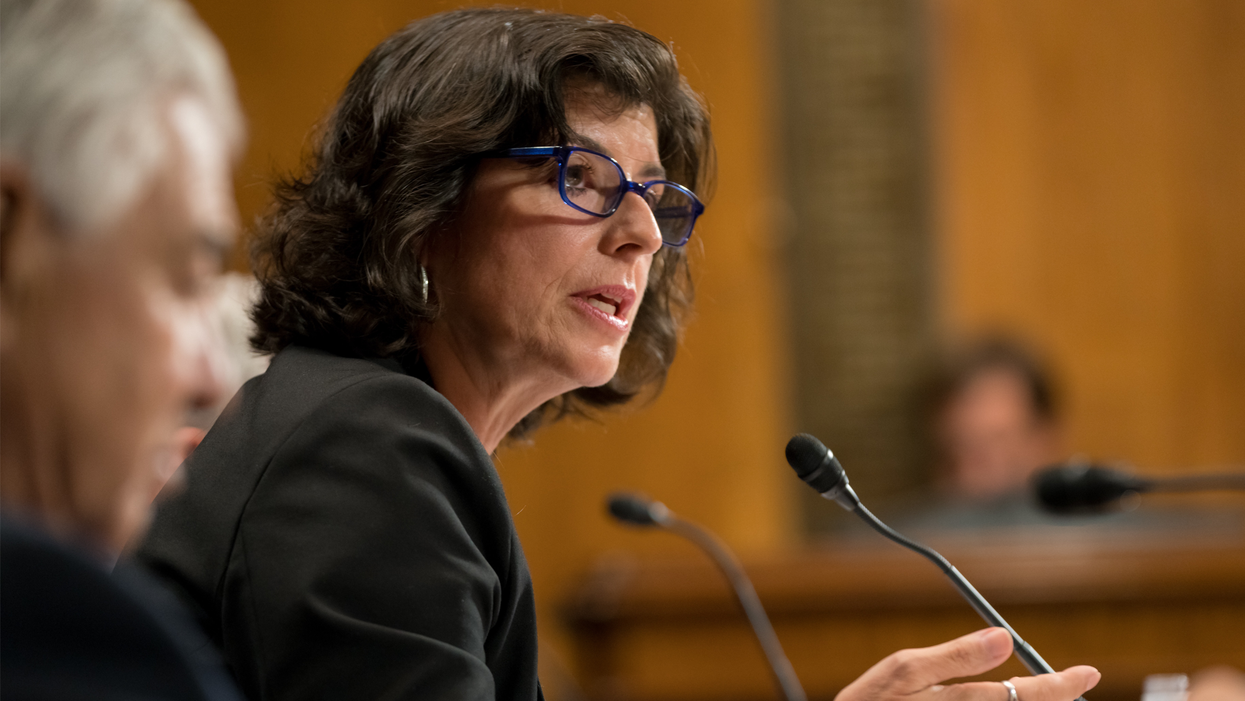Danielle Brian is executive director of the Project On Government Oversight, a nonpartisan independent watchdog that investigates corruption, misconduct and conflicts of interest in the federal government. A South Florida native and National FOIA Hall of Fame member, Brian has testified before Congress more than 40 times in the 27 years she's been leading the organization, which goes by the memorable acronym POGO. She returned to the group and took the reins in 1993 after interning there a decade earlier. Her answers have been lightly edited for clarity and length.
What's the tweet-length description of your organization?
@POGOBlog is a nonpartisan watchdog that fights to fix the federal government. We investigate corruption, abuse of power and when the government silences whistleblowers. We champion reforms to achieve a more effective, ethical and accountable federal government that safeguards constitutional principles.
Describe your very first civic engagement.
During my internship for my member of Congress, I persuaded him to change a vote. I thought it was because of the power of my arguments but learned later from the legislative director that it was the passion with which I made my case that won him over.
What was your biggest professional triumph?
Working with whistleblowers, we helped to expose a massive fraud against taxpayers by the oil and gas industry. When we sued the 15 biggest oil companies, they fought back hard and got their friends in Congress to go after us for them. After years of battles that might have destroyed the organization, we not only emerged stronger, but we forced the companies to pay nearly $500 million back to the taxpayers, helped break up the Minerals Management Service into three separate agencies at the Interior Department and caused the regulations to change so that companies couldn't commit that fraud again in the future.
And your most disappointing setback?
Not getting intelligence community whistleblower protections into the Whistleblower Protection Enhancement Act when we helped get it passed in 2012. (But maybe now we will!)
How does your identity influence the way you go about your work?
Being an independent, I'm liberated from feeling the pain of partisan hypocrisy.
What's the best advice you've ever been given?
When it comes to working in Washington, it's a combination of "Put not your trust in princes" and Stephen Stills' "Love the one you're with." I have learned to work with a person I agree with on an issue, but I don't assume we will agree on anything else.
Create a new flavor for Ben & Jerry's.
"Exposing Cocoa-ruption": nuts partially covered in chocolate in a swirling base of strawberry and blueberry.
What's your favorite political movie or TV show?
I can't decide between West Wing and House of Cards. It depends on my mood.
What's the last thing you do on your phone at night?
Check to see if either of my adult kids or my mom has texted.
What is your deepest, darkest secret?
I worked for Geraldo Rivera!




















Trump & Hegseth gave Mark Kelly a huge 2028 gift